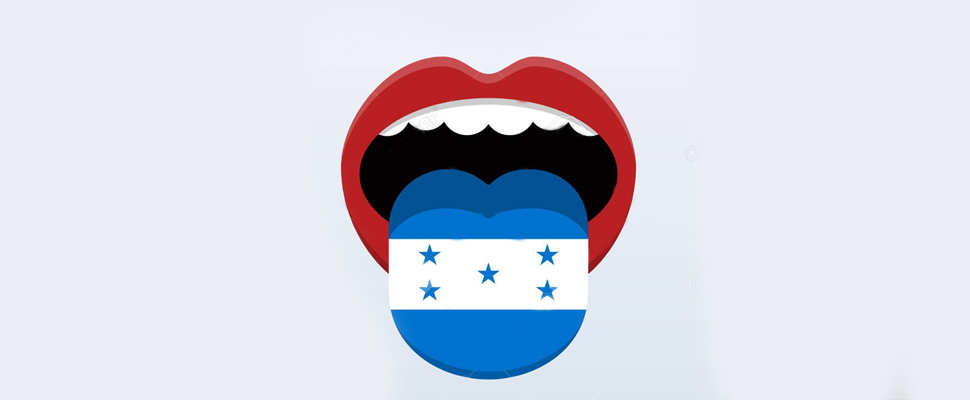Honduran speech: an outsider’s guide to understanding ‘Catrachos’
For any travellers looking to engage and immerse themselves in Honduran culture I recommend having some knowledge of the slang and informal speech as it comes in extremely handy

On speaking with a Spanish colleague a while ago, himself a journalist with Spain’s leading newspaper ‘El País’, we both agreed that Central American Spanish can be most colourful. He was impressed with my level of Spanish and intrigued by what I taught him concerning how to speak as many Hondurans do. I myself, am a journalist/associate editor for a Caribbean newspaper. I live on the Caribbean coast of Honduras, whose people speak a Spanish which a student will not acquaint themselves with in any textbook.
“Este man anda pisto loco”.
“This man has money crazy guy”.
This is a common phrase heard in Honduras. There are several words included which many travellers would be confused by. Native Spanish speakers as well. In Honduras, amongst other Latin nations, people have adopted the English word ‘man’ and use it instead of ‘hombre’. There are several ways of pronouncing and even spelling the word. If a Honduran writes you a message they may spell it like ‘mayn’ or even ‘men’. With the latter, they obviously haven’t realised as nation that ‘men’ is the plural for ‘man’. Like in Spanish, ‘hombre’ and ‘hombres’.
The phrase mentioned is very Latino in its Spanish, the usage of the verb ‘andar’ (to walk) is used excessively to replace what should be ‘tener’ (to have).
‘Pisto’ is one of the most well-known Honduran slang terms. It simple means ‘money’, the standard word in Spanish being ‘dinero’. As in all Latin American nations, words such as ‘plata’ and ‘billete’ are also used. ‘Pisto’ is entirely Honduran though. To translate the example phrase, it literally translates IGNORE INTO English as being "this man walks money crazy". It makes little sense – does it not? What they mean to say is ‘this man has money crazy guy’.
‘Loco’ or ‘loca’ is amusingly applied to a person when a Honduran is speaking to them. For some unknown reason everyone is called either a crazy guy (loco) or a crazy girl/woman (loca). That serves therefore, as an example of a typical sentence which you might hear if in Honduras.
I have compiled a list here of ‘Hondureñismos’ or typical Honduran words:
- Maje: guy, fellow. Can be used for both sexes.
- Pija: vulgar yet common. ‘Male private parts’.
- Pija de/Pije: vulgar again yet very common, something that is large – ‘una pija fila’ being a ‘long line’. ‘Que pije carro’ ‘what a big car”.
- Pijeado/Vergeado: a bad situation maybe. Vulgar speech, for example ‘está bien pijeado/vergeado. ‘It’s well f***** up’.
- Pulperia: a corner shop. These are to be found on every single street nationwide.
- La Pulpe: the above word shortened.
- La Trucha: another word for a corner shop. This is also Spanish for a ‘trout’ – the fish.
- Perro: a dog yet used in the street sense as is popular in the US, ‘dawg’ – guy, fella)
- Chorets: shorts. A misspelt and mispronounced word from the English ‘shorts’.
- Man, Mayn, Men: Man or Woman. This bizzare use of Spanglish can even be applied to a woman! ‘Que bonita esa man’ or ‘what a pretty woman’.
- 220 or Dos-Veinte: ‘Two-twenty’ where I find myself living means ‘crazy’.
- Simón: the name Simon yet used to affirm something. Someone says to you in Honduras ‘are you coming out tonight?’ You then respond smoothly with ‘Simón’.
- Ahuevo: Literally ‘to the egg’. Egg in Spanish is ‘huevo’ yet this word is also applied to a male’s testicals. ‘To the ball’ is the real meaning. This is used to agree with something, for instance a Honduran says to you ‘Germany won the last football World Cup’. You know this to be true so you reply ‘ahuevo’.
- Pijinear: to party. To have a good time, to go out and go partying.
- Pisto, Baras, Billete, Plata: money.
- Pisar: to have sex
- Montar Pija: to fight someone. ‘¿Queres que te monte pija? ‘Do you want me to mount you dick?’ Translated literally it makes no sense in English, basically ‘do you want me to give you a beating?’
- Faiboo, Twidder: Facebook and Twitter
- Chelas, Salvas, Frias: Beers
- Chele: A person of white skin, blue or green eyes, light hair
- Marero: A drugdealer, ‘a man of marijuana’.
- Achuña: to be barefoot.
These are the most commonly heard Honduran words and phrases that I come across day to day. Some are indeed rude yet impossible not to hear if in Honduras.
Latin American Post | Ben Anson
Copy edited by Laura Rocha Rueda






